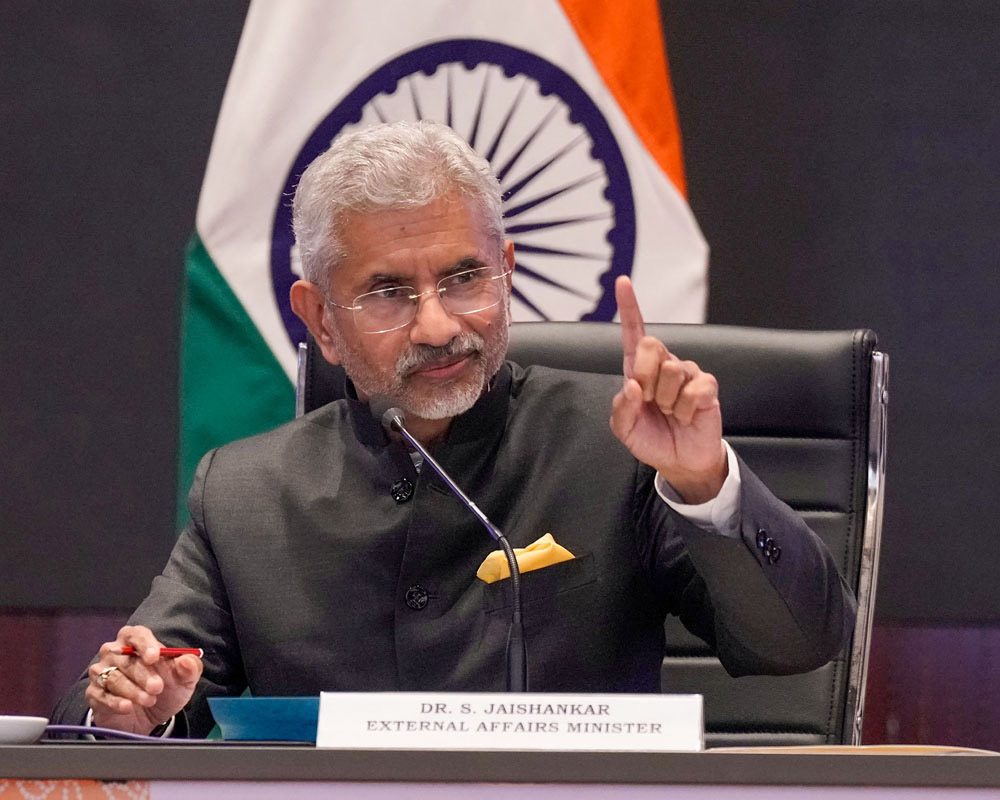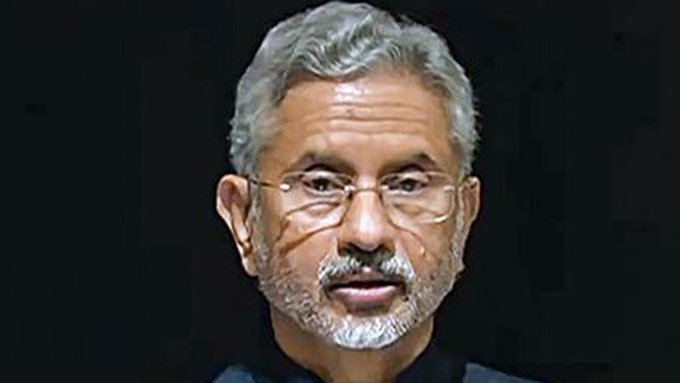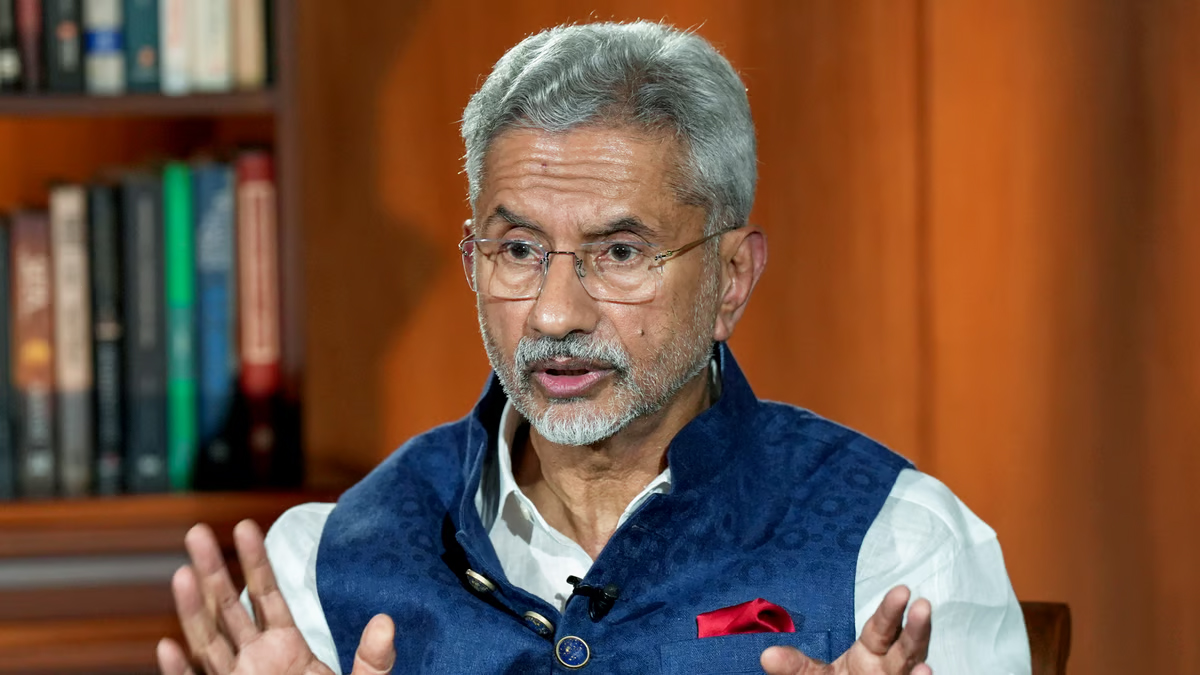Underlining the vision of “Atmanirbhar Bharat”, Union minister S Jaishankar has said a mindset itself is undergoing a transformation in the country with a “new India” that invents its COVID-19 vaccines and also lands near the south pole of the Moon
 KRC TIMES National Bureau
KRC TIMES National Bureau

Underlining the vision of “Atmanirbhar Bharat”, Union minister S Jaishankar has said a mindset itself is undergoing a transformation in the country with a “new India” that invents its COVID-19 vaccines and also lands near the south pole of the Moon.
In a recorded video message played during an event here, the external affairs minister also said during India’s G20 presidency last year, “we deliberated on structural issues” that are at the heart of the predicament of the Global South today.
Key among those are various concentrations, created by last three-four decades of globalisation, for a variety of reasons that range from scales, subsidies, technology, human resources and strategic choices, he said.
“The Global South was largely reduced to being a consumer rather than a producer. India’s response to this situation is articulated in Atmanirbhar Bharat, that is self-reliant India,” Jaishankar said.
At its core is the “Make in India” initiative, one that “not only focuses on our own needs, but those of others as well”, driven by a strong commitment to make it easier to do business in India, he added.

“Indeed, a mindset itself is undergoing a transformation, a new India that creates its own 5G stacks, which invents and mass produces its Covid vaccines and which lands near the south pole of the Moon,” the Union minister asserted.
The event was jointly hosted by the World Intellectual Property Organisation (WIPO) and the Delhi High Court on the inaugural session of the masterclass on “Intellectual Property Adjudication — Judicial Perspectives”.
The government has been fostering creativity and innovation through several national initiatives, such as Make in India, Digital India, Start Up India, the Atal Tinkering Labs and the Atal Incubation Centres, the external affairs minister said.
The results of all these initiatives are also very clear, he said, adding, “India has been on a rising trajectory over the past several years” as reflected in the WIPO’s global innovation index. It has risen from a rank of 81 in 2015 to 40 in 2023 and is now among the top innovation economies of the world, both in terms of income category and the region, Jaishankar said.
“In fact, innovation has been at the forefront of our battle against the unprecedented crisis created by the (Covid) pandemic,” he said.
In his video message, Jaishankar also emphasised the importance of intellectual property rights in the modern era.
Intellectual property (IP) stands as a cornerstone of human ingenuity, encapsulating the fruits of creativity and innovation within intangible legal rights, he said.
“In our modern era, intellectual property rights (IPR) have assumed paramount importance in global trade practices and the sustenance of livelihoods worldwide,” the minister said.
These rights serve not only to acknowledge creators and inventors, but also to stimulate ongoing innovation, thus fostering societal and economic advancement, he added.
The introduction of the National Intellectual Property Rights Policy in 2016 represents a landmark initiative in fostering creativity and innovation within India. The policy delineates a comprehensive roadmap for the future of IPR in the country, emphasising the importance of awareness, commercialisation, modernisation and human capital development in the field of intellectual property, Jaishankar said.
Recent developments within India’s academic sphere signal a growing interest in intellectual property law, with leading universities offering specialised courses and establishing chairs dedicated to this field, he added.
“Our engagement with international bodies, such as the WIPO, underscores the commitment to global cooperation in the realm of intellectual property,” he said.
By participating in various treatises administered by the WIPO and aligning its laws with international standards, India has positioned itself as a key player in the field of intellectual property, recognising its pivotal role in driving innovation, economic growth and cultural development, the minister added.






